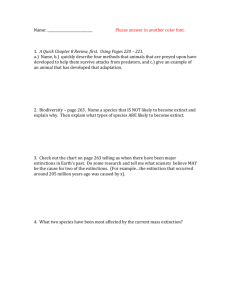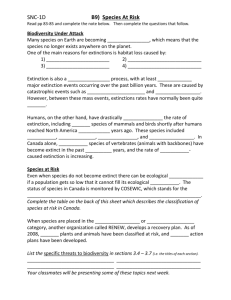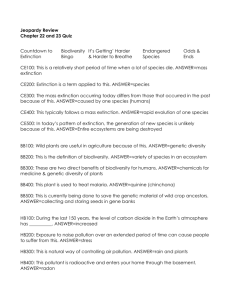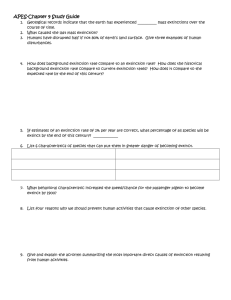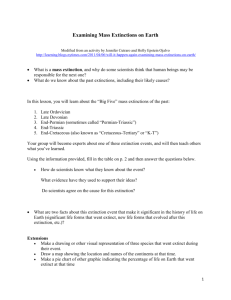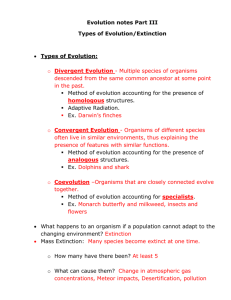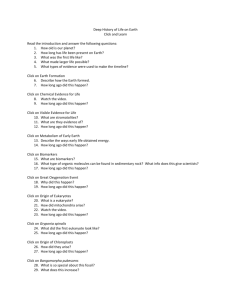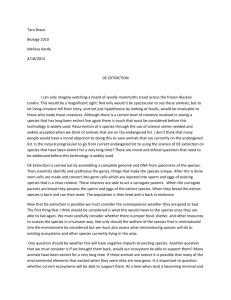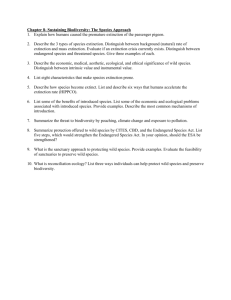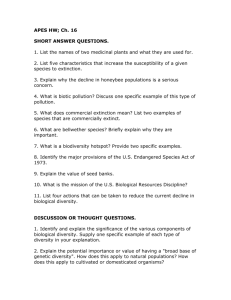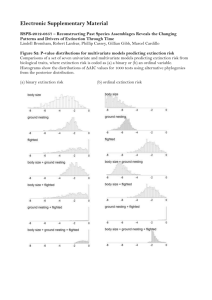9.1 and 9.2 notes
advertisement
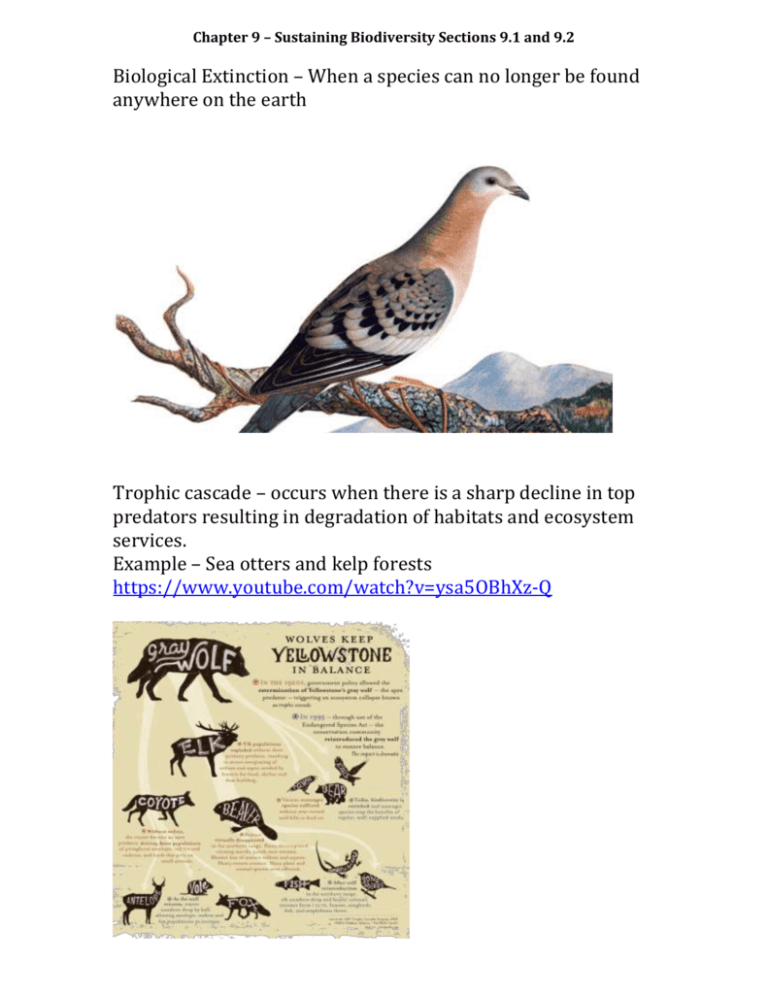
Chapter 9 – Sustaining Biodiversity Sections 9.1 and 9.2 Biological Extinction – When a species can no longer be found anywhere on the earth Trophic cascade – occurs when there is a sharp decline in top predators resulting in degradation of habitats and ecosystem services. Example – Sea otters and kelp forests https://www.youtube.com/watch?v=ysa5OBhXz-Q A mass extinction occurs when an estimated 50 to 95% of the earth’s species become extinct. Five may have occurred in the past. The causes are poorly understood. Extinction is natural . Background extinction is the rate that existed before modern humans evolved. This is estimated to be 1 species per year for every 1 million species. It is estimated that today’s rate of extinction is 100 to 1,000 times the background rate. Average loss is 2 to 27 species per day. We may lose as many as 50% of the earth’s species by the end of the century. How would this effect ecosystem services? Air and water purification, pollination, pest control Why may an extinction rate 10,000 that of background extinction be considered low? 1) threats to ecosystem services will continue as human population increased 2) biodiversity hotspots are at great risk EX. Rainforests 3) We are eliminating diverse environments that serve as potential sites for the emergence of new species Classifications Endangered – so few individuals they could become extinct Threatened (vulnerable) – enough remaining to survive in the short term Who is the IUCN? Critically endangered species What does it mean to become functionally extinct? Examples: Baiji dolphin, white rhino List several characteristics of endangered species and include examples for each. Characteristic Examples Low reproductive rate Blue whale, giant panda, rhinoceros Specialized niche Blue whale, giant panda, Everglades kite Feeds at high trophic level Bengal tiger, bald eagle, grizzly bear Rare Large territories African violet, some orchids California condor, grizzly bear, Florida panther 9.2 Does it matter if species become extinct? Explain the three reasons why we should try to prevent extinction.
